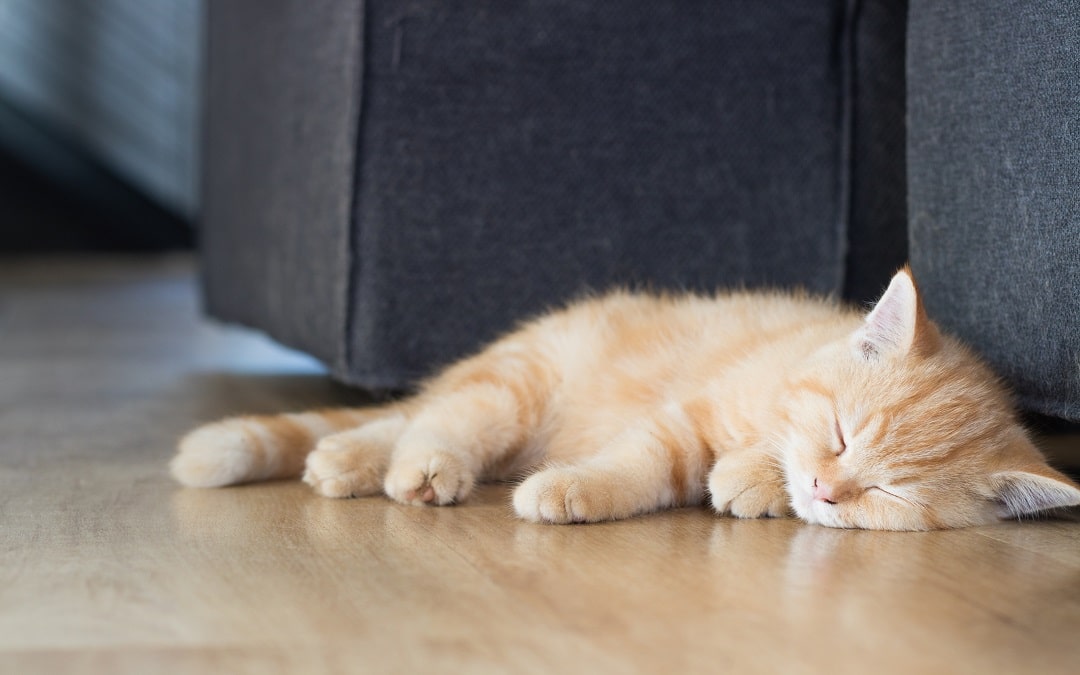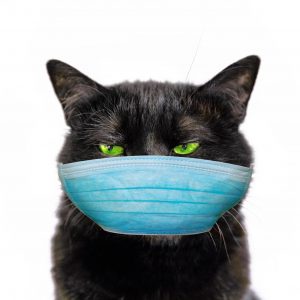What is Cat Flu and Why Should You Care?
Like the human common cold, cat flu is a virus that attacks the upper respiratory tract of cats. It is caused by a bacteria and viral infection. The main virus’ responsible for cat flu are Feline Calici virus and Feline Herpes Virus. There are a range of signs of cat flu that are typically upper respiratory related. Unfortunately, once a cat has caught cat flu it is possible for them to become a lifetime carrier and suffer symptoms throughout their life. Cat flu is not normally serious and most cats tend to live a normal life once better.
Common Symptoms of Cat Flu
There is a large variation of symptoms that are associated with cat flu. Some cats may present with one or more of some symptoms, but not present with others. Common symptoms include:
– Runny nose
– Runny eyes/conjunctivitis
– High temperature
– Coughing
– Sneezing
– Sore throat
Ocular Signs:
– Weeping eyes
– Inflammation of skin around eyes
– Redness
Eye related symptoms of cat flu such as eye ulcers are more commonly seen in kittens, however can be seen in any case of cat flu. Eye ulcers; if not treated, can progress to more severe damage to the eye resulting in loss of vision. Cats with painful eyes are likely to blink more than usual, hold the eye closed and have changes in the usual behaviour; such as hiding away. Ocular ulcers need to be examined by the vet for a diagnosis, however, if your pet has a sore, weeping, or partially closed eye you should seek immediate veterinary attention. You should also discuss with your vet any changes to your cats’ eyes such as; cloudiness, discharge, redness or loss of vision.
Oral Symptoms
As cat flu is similar to the common cold there are similar signs associated with the upper respiratory infection. Most oral symptoms are related with the oral cavity including;
– coughing
– sneezing
– excessive drooling
– mouth ulcers
All of which can be painful for your pet. You may find that you pet is reluctant to eat and drink. As your cat is unwell it is important that they remain hydrated at all times. If your cat has any signs you should seek veterinary advice.
General Symptoms
In most cases, a cat infected with cat flu will require care and treatments to alleviate the symptoms however will be able to rest at home. General symptoms; in conjunction with cat flu specific symptoms include:
– lethargy
– high temperature
– fever
– muscle aches and pains
– off food/water
These may present in your cat through reluctance to play, low to little energy and general out of character. You should seek veterinary care if your cat has any of these symptoms with or without cat flu specific symptoms.
Treating Cat Flu, When to Seek Veterinary Care?
If your pet is presenting with any symptoms cat flu you should seek veterinary advice. Symptoms may be alleviated with medication and supportive treatment. Some symptoms including ocular symptoms can progress into long term damage if not treated initially. It is also important to isolate any cat with symptoms as cat flu is highly contagious. One a cat has caught cat flu it is possible for them to become a life time carrier and suffer symptoms throughout their life. There are preventative measures that can be put in place to protect our cats through the use of vaccination.
Prevention and Cat Flu Vaccination
As social creatures it is paramount that we are protecting cats from the virus. Vaccinations are available from 9 weeks of age and yearly boosters are required to continue the protection for the cat. Cat flu is extremely contagious and spreads via salvia, snot and sneezes that can be transferred on shared bowls and bedding. In the UK we vaccinate cats against feline herpes and feline calicivius; two main causes for cat flu. For more information on vaccinations, or to book your cat in for a vaccination please seek veterinary advice.
Conclusion
Cat flu is a viral infection similar to the common cold where cats present with various upper respiratory symptoms. The majority of cat flu cases results from infection with feline calicivirus and feline herpes virus. Most cats will recover fine from cat flu although there can be complications in older, young and immune-compromised cats. Once a cat has caught cat flu they may be a carrier for the virus and experience symptoms throughout their life. Cat flu is highly contagious and is easily spread via any infected discharge. Vaccinations will prevent the virus from attacking your cat and will prevent the spread of disease.



